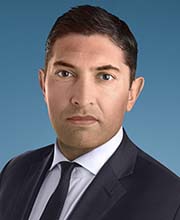 AMÉLIE DELAUNAY, DIRECTOR OF RESEARCH AND PROFESSIONAL STANDARDS, ANREV
No change of plan in APAC:
AMÉLIE DELAUNAY, DIRECTOR OF RESEARCH AND PROFESSIONAL STANDARDS, ANREV
No change of plan in APAC: The great majority of institutional investors globally plan to stick firm to their future investment plans for non-listed real estate in the Asia-Pacific region in the coming year, according to our annual Investment Intentions Survey.
Despite the turbulence of 2020, 77% of respondents said that the coronavirus pandemic had not changed their investment plans in Asia-Pacific. In fact, more investors reported plans to increase allocations to real estate than to reduce them because of Covid-19, which was particularly the case with Asia-Pacific investments, as 22% said the crisis urged them to increase their planned investments in the region.
This is not only driven by investors outside the region looking to increase their real estate allocation to the region in a search for international diversification, but also from Asia-Pacific investors: 72% of investors expect their allocation to Asia-Pacific to increase over the next two years, far higher than the proportion expecting an increase in allocation to the other regions, as indicated by the survey.
This year, the top main investment destinations are the same as in previous years – Sydney, Melbourne and Tokyo – but for the first time, investors indicated that the industrial and logistics sector in Australia is their most preferred destination/sector combination for 2021, ahead of offices in the country which have long dominated the rankings. This was followed by the residential sector in Tokyo.
The region should see another influx of capital in 2021.
 RACHEL TONG, MANAGING DIRECTOR AND HEAD OF REAL ESTATE PRIVATE EQUITY, VALUE PARTNERS
A taste for Tokyo:
RACHEL TONG, MANAGING DIRECTOR AND HEAD OF REAL ESTATE PRIVATE EQUITY, VALUE PARTNERS
A taste for Tokyo: We see Tokyo as the most preferred city for investment in 2021. The city has ranked in the top-three most popular destinations since 2018 owing to its availability of high-quality assets and strong liquidity. Secondly, although CBD [central business district] office rents in Singapore declined in 2020, rents are forecasted to register growth over the next three years, supported by low vacancy and strong demand. Singapore remains an important hub for foreign corporations looking to access Southeast Asia and is also emerging as a viable alternative to Hong Kong among companies establishing Asia-Pacific headquarters.
The Korean market is also an area to pay attention to and the investors retain a strong appetite for modern logistics properties in Greater Seoul.
For the challenges, as many government support programmes come to an end in 2021, the commercial real estate market is expected to receive significant amounts of stressed or distressed assets to be released. In Asia-Pacific, government funding to support local economies put commercial real estate transactions on hold as asset owners had yet to feel the pressure to sell and buyers were taking a wait-and-see attitude.
In China, as the government continues to tighten bank financing, both large and small developers are looking to all assets to meet debt obligations or to fund new land acquisitions. China’s residential sector is most vulnerable to distress selling as oversupply has surfaced in some areas. However, the demand for residential assets remained strong during the ‘Golden Week’ in October, [when] residential developers can avoid a credit shortage if they are willing to cut the sales prices.
The impact of the pandemic has added another layer of stress to India’s developers on top of the 2019 crackdown of developer-finance irregularities. It is estimated that about 95% of Indian developers are facing potential cash and liquidity shortages.
Popularity contest: We always liked the logistic centres and data centres, even before the pandemic period. With the pandemic boosting demand for industrial and logistics property over the course of 2020, the sector was named the most popular for investment in 2021. Data centres were the subject of stronger interest as a surge in demand for video-conferencing and other platforms to support remote working led to increasing requirements for data storage. As data centres require considerable expertise to secure and operate suitable sites, partnering with experienced operators remains the preferred entry route for investors.
We should see an increasing opportunity for investors to partner with second-tier data centre operators in need of equity investment to expand their capacity and footprint.
Separately, there continues to be strong interest in real estate debt, with this year likely to bring a host of opportunities, particularly in China, where the government recently imposed new caps on bank lending to developers. This is likely to force developers to utilise private debt.
 SUCHAD CHIARANUSSATI, CHAIRMAN AND FOUNDER, SC CAPITAL PARTNERS
An academic focus:
SUCHAD CHIARANUSSATI, CHAIRMAN AND FOUNDER, SC CAPITAL PARTNERS
An academic focus: It’s no surprise that we are seeing increasing institutional demand for investment resilience and stability during the pandemic, but it might be a surprise that one sector that has benefited from that is the education sector in Asia Pacific.
We were an early mover in the education market, with exposure in Japan, South Korea, Australia, New Zealand, Singapore, Hong Kong and China through student accommodation, commercial buildings with education-related tenants such as tuition and enrichment centres, and bilingual schools. The ever-increasing demand for good quality education institutions and schools in Asia Pacific, the need to upskill in an increasingly competitive market and parents’ historical desire and ability to spend on their children’s education are some of the key drivers.
The pandemic has created more opportunities for a wider variety of educational providers and as we come out of the worst of it, we will see an increase in demand for private equity real estate “solutions”.
This exposure to education has provided our investors with stable income, such as through long master-leases and high-quality tenants. With an upsurge in educational spending expected to continue in Asia Pacific for the long-term, we will definitely be looking to gain more exposure to this maturing sector for our institutional client base.
 PAUL BASHIR, CEO EUROPE, HARRISON STREET
Life sciences:
PAUL BASHIR, CEO EUROPE, HARRISON STREET
Life sciences: The European life-science sector is in its infancy and there is structural undersupply which cannot keep pace with the increasing demand from occupiers. Our investment strategy in life sciences is across the risk spectrum, and we are seeing assets for acquisitions at attractive pricing and with value-add opportunities. Although our initial investment was in the UK market, we are also exploring opportunities in Ireland and the Netherlands and will target Switzerland in the future.
While we identified the life-science opportunity long before Covid-19, the pandemic has highlighted the rising need for investment in this space, not just in relation to this crisis, but also for many other long-term challenges. For instance, chronic illnesses such as heart disease, asthma, cancer and diabetes are more prevalent, as life expectancy is increasing globally.
This article first appeared in Funds Europe.
© 2021 funds global asia
 AMÉLIE DELAUNAY, DIRECTOR OF RESEARCH AND PROFESSIONAL STANDARDS, ANREV
No change of plan in APAC: The great majority of institutional investors globally plan to stick firm to their future investment plans for non-listed real estate in the Asia-Pacific region in the coming year, according to our annual Investment Intentions Survey.
Despite the turbulence of 2020, 77% of respondents said that the coronavirus pandemic had not changed their investment plans in Asia-Pacific. In fact, more investors reported plans to increase allocations to real estate than to reduce them because of Covid-19, which was particularly the case with Asia-Pacific investments, as 22% said the crisis urged them to increase their planned investments in the region.
This is not only driven by investors outside the region looking to increase their real estate allocation to the region in a search for international diversification, but also from Asia-Pacific investors: 72% of investors expect their allocation to Asia-Pacific to increase over the next two years, far higher than the proportion expecting an increase in allocation to the other regions, as indicated by the survey.
This year, the top main investment destinations are the same as in previous years – Sydney, Melbourne and Tokyo – but for the first time, investors indicated that the industrial and logistics sector in Australia is their most preferred destination/sector combination for 2021, ahead of offices in the country which have long dominated the rankings. This was followed by the residential sector in Tokyo.
The region should see another influx of capital in 2021.
AMÉLIE DELAUNAY, DIRECTOR OF RESEARCH AND PROFESSIONAL STANDARDS, ANREV
No change of plan in APAC: The great majority of institutional investors globally plan to stick firm to their future investment plans for non-listed real estate in the Asia-Pacific region in the coming year, according to our annual Investment Intentions Survey.
Despite the turbulence of 2020, 77% of respondents said that the coronavirus pandemic had not changed their investment plans in Asia-Pacific. In fact, more investors reported plans to increase allocations to real estate than to reduce them because of Covid-19, which was particularly the case with Asia-Pacific investments, as 22% said the crisis urged them to increase their planned investments in the region.
This is not only driven by investors outside the region looking to increase their real estate allocation to the region in a search for international diversification, but also from Asia-Pacific investors: 72% of investors expect their allocation to Asia-Pacific to increase over the next two years, far higher than the proportion expecting an increase in allocation to the other regions, as indicated by the survey.
This year, the top main investment destinations are the same as in previous years – Sydney, Melbourne and Tokyo – but for the first time, investors indicated that the industrial and logistics sector in Australia is their most preferred destination/sector combination for 2021, ahead of offices in the country which have long dominated the rankings. This was followed by the residential sector in Tokyo.
The region should see another influx of capital in 2021.
 RACHEL TONG, MANAGING DIRECTOR AND HEAD OF REAL ESTATE PRIVATE EQUITY, VALUE PARTNERS
A taste for Tokyo: We see Tokyo as the most preferred city for investment in 2021. The city has ranked in the top-three most popular destinations since 2018 owing to its availability of high-quality assets and strong liquidity. Secondly, although CBD [central business district] office rents in Singapore declined in 2020, rents are forecasted to register growth over the next three years, supported by low vacancy and strong demand. Singapore remains an important hub for foreign corporations looking to access Southeast Asia and is also emerging as a viable alternative to Hong Kong among companies establishing Asia-Pacific headquarters.
The Korean market is also an area to pay attention to and the investors retain a strong appetite for modern logistics properties in Greater Seoul.
For the challenges, as many government support programmes come to an end in 2021, the commercial real estate market is expected to receive significant amounts of stressed or distressed assets to be released. In Asia-Pacific, government funding to support local economies put commercial real estate transactions on hold as asset owners had yet to feel the pressure to sell and buyers were taking a wait-and-see attitude.
In China, as the government continues to tighten bank financing, both large and small developers are looking to all assets to meet debt obligations or to fund new land acquisitions. China’s residential sector is most vulnerable to distress selling as oversupply has surfaced in some areas. However, the demand for residential assets remained strong during the ‘Golden Week’ in October, [when] residential developers can avoid a credit shortage if they are willing to cut the sales prices.
The impact of the pandemic has added another layer of stress to India’s developers on top of the 2019 crackdown of developer-finance irregularities. It is estimated that about 95% of Indian developers are facing potential cash and liquidity shortages.
Popularity contest: We always liked the logistic centres and data centres, even before the pandemic period. With the pandemic boosting demand for industrial and logistics property over the course of 2020, the sector was named the most popular for investment in 2021. Data centres were the subject of stronger interest as a surge in demand for video-conferencing and other platforms to support remote working led to increasing requirements for data storage. As data centres require considerable expertise to secure and operate suitable sites, partnering with experienced operators remains the preferred entry route for investors.
We should see an increasing opportunity for investors to partner with second-tier data centre operators in need of equity investment to expand their capacity and footprint.
Separately, there continues to be strong interest in real estate debt, with this year likely to bring a host of opportunities, particularly in China, where the government recently imposed new caps on bank lending to developers. This is likely to force developers to utilise private debt.
RACHEL TONG, MANAGING DIRECTOR AND HEAD OF REAL ESTATE PRIVATE EQUITY, VALUE PARTNERS
A taste for Tokyo: We see Tokyo as the most preferred city for investment in 2021. The city has ranked in the top-three most popular destinations since 2018 owing to its availability of high-quality assets and strong liquidity. Secondly, although CBD [central business district] office rents in Singapore declined in 2020, rents are forecasted to register growth over the next three years, supported by low vacancy and strong demand. Singapore remains an important hub for foreign corporations looking to access Southeast Asia and is also emerging as a viable alternative to Hong Kong among companies establishing Asia-Pacific headquarters.
The Korean market is also an area to pay attention to and the investors retain a strong appetite for modern logistics properties in Greater Seoul.
For the challenges, as many government support programmes come to an end in 2021, the commercial real estate market is expected to receive significant amounts of stressed or distressed assets to be released. In Asia-Pacific, government funding to support local economies put commercial real estate transactions on hold as asset owners had yet to feel the pressure to sell and buyers were taking a wait-and-see attitude.
In China, as the government continues to tighten bank financing, both large and small developers are looking to all assets to meet debt obligations or to fund new land acquisitions. China’s residential sector is most vulnerable to distress selling as oversupply has surfaced in some areas. However, the demand for residential assets remained strong during the ‘Golden Week’ in October, [when] residential developers can avoid a credit shortage if they are willing to cut the sales prices.
The impact of the pandemic has added another layer of stress to India’s developers on top of the 2019 crackdown of developer-finance irregularities. It is estimated that about 95% of Indian developers are facing potential cash and liquidity shortages.
Popularity contest: We always liked the logistic centres and data centres, even before the pandemic period. With the pandemic boosting demand for industrial and logistics property over the course of 2020, the sector was named the most popular for investment in 2021. Data centres were the subject of stronger interest as a surge in demand for video-conferencing and other platforms to support remote working led to increasing requirements for data storage. As data centres require considerable expertise to secure and operate suitable sites, partnering with experienced operators remains the preferred entry route for investors.
We should see an increasing opportunity for investors to partner with second-tier data centre operators in need of equity investment to expand their capacity and footprint.
Separately, there continues to be strong interest in real estate debt, with this year likely to bring a host of opportunities, particularly in China, where the government recently imposed new caps on bank lending to developers. This is likely to force developers to utilise private debt.
 SUCHAD CHIARANUSSATI, CHAIRMAN AND FOUNDER, SC CAPITAL PARTNERS
An academic focus: It’s no surprise that we are seeing increasing institutional demand for investment resilience and stability during the pandemic, but it might be a surprise that one sector that has benefited from that is the education sector in Asia Pacific.
We were an early mover in the education market, with exposure in Japan, South Korea, Australia, New Zealand, Singapore, Hong Kong and China through student accommodation, commercial buildings with education-related tenants such as tuition and enrichment centres, and bilingual schools. The ever-increasing demand for good quality education institutions and schools in Asia Pacific, the need to upskill in an increasingly competitive market and parents’ historical desire and ability to spend on their children’s education are some of the key drivers.
The pandemic has created more opportunities for a wider variety of educational providers and as we come out of the worst of it, we will see an increase in demand for private equity real estate “solutions”.
This exposure to education has provided our investors with stable income, such as through long master-leases and high-quality tenants. With an upsurge in educational spending expected to continue in Asia Pacific for the long-term, we will definitely be looking to gain more exposure to this maturing sector for our institutional client base.
SUCHAD CHIARANUSSATI, CHAIRMAN AND FOUNDER, SC CAPITAL PARTNERS
An academic focus: It’s no surprise that we are seeing increasing institutional demand for investment resilience and stability during the pandemic, but it might be a surprise that one sector that has benefited from that is the education sector in Asia Pacific.
We were an early mover in the education market, with exposure in Japan, South Korea, Australia, New Zealand, Singapore, Hong Kong and China through student accommodation, commercial buildings with education-related tenants such as tuition and enrichment centres, and bilingual schools. The ever-increasing demand for good quality education institutions and schools in Asia Pacific, the need to upskill in an increasingly competitive market and parents’ historical desire and ability to spend on their children’s education are some of the key drivers.
The pandemic has created more opportunities for a wider variety of educational providers and as we come out of the worst of it, we will see an increase in demand for private equity real estate “solutions”.
This exposure to education has provided our investors with stable income, such as through long master-leases and high-quality tenants. With an upsurge in educational spending expected to continue in Asia Pacific for the long-term, we will definitely be looking to gain more exposure to this maturing sector for our institutional client base.
 PAUL BASHIR, CEO EUROPE, HARRISON STREET
Life sciences: The European life-science sector is in its infancy and there is structural undersupply which cannot keep pace with the increasing demand from occupiers. Our investment strategy in life sciences is across the risk spectrum, and we are seeing assets for acquisitions at attractive pricing and with value-add opportunities. Although our initial investment was in the UK market, we are also exploring opportunities in Ireland and the Netherlands and will target Switzerland in the future.
While we identified the life-science opportunity long before Covid-19, the pandemic has highlighted the rising need for investment in this space, not just in relation to this crisis, but also for many other long-term challenges. For instance, chronic illnesses such as heart disease, asthma, cancer and diabetes are more prevalent, as life expectancy is increasing globally.
This article first appeared in Funds Europe.
© 2021 funds global asia
PAUL BASHIR, CEO EUROPE, HARRISON STREET
Life sciences: The European life-science sector is in its infancy and there is structural undersupply which cannot keep pace with the increasing demand from occupiers. Our investment strategy in life sciences is across the risk spectrum, and we are seeing assets for acquisitions at attractive pricing and with value-add opportunities. Although our initial investment was in the UK market, we are also exploring opportunities in Ireland and the Netherlands and will target Switzerland in the future.
While we identified the life-science opportunity long before Covid-19, the pandemic has highlighted the rising need for investment in this space, not just in relation to this crisis, but also for many other long-term challenges. For instance, chronic illnesses such as heart disease, asthma, cancer and diabetes are more prevalent, as life expectancy is increasing globally.
This article first appeared in Funds Europe.
© 2021 funds global asia 
 At times like these, HSBC Asset Management easily pivots towards emerging markets.
At times like these, HSBC Asset Management easily pivots towards emerging markets. A comprehensive, cost-effective, and transparent currency overlay hedging solution is crucial to mitigate FX exposure risks in the complex landscapes of Japan and China's FX markets, explains Hans Jacob Feder, PhD, global head of FX services at MUFG Investor Services.
A comprehensive, cost-effective, and transparent currency overlay hedging solution is crucial to mitigate FX exposure risks in the complex landscapes of Japan and China's FX markets, explains Hans Jacob Feder, PhD, global head of FX services at MUFG Investor Services. The world is transitioning from an era of commodity abundance to one of undersupply. Ben Ross and Tyler Rosenlicht of Cohen & Steers believe this shift may result in significant returns for commodities and resource producers over the next decade.
The world is transitioning from an era of commodity abundance to one of undersupply. Ben Ross and Tyler Rosenlicht of Cohen & Steers believe this shift may result in significant returns for commodities and resource producers over the next decade. Ross Dilkes, fixed income portfolio manager at Wellington Management, examines the opportunities and risks for bond investors presented by the region’s decarbonisation agenda.
Ross Dilkes, fixed income portfolio manager at Wellington Management, examines the opportunities and risks for bond investors presented by the region’s decarbonisation agenda. Shareholders in Japan no longer accept below-par corporate governance standards. Changes are taking place, but there are still areas for improvement, says Tetsuro Takase at SuMi Trust.
Shareholders in Japan no longer accept below-par corporate governance standards. Changes are taking place, but there are still areas for improvement, says Tetsuro Takase at SuMi Trust. Robert St Clair, head of investment strategy at Fullerton Fund Management, explores the reasons investors should be paying attention to the rising demand for healthcare in China.
Robert St Clair, head of investment strategy at Fullerton Fund Management, explores the reasons investors should be paying attention to the rising demand for healthcare in China.


